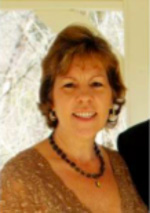
Let’s face it, children make up the cutest patient population out there. It’s hard to resist their smiling little faces, or the tears that well up in their big bright eyes when faced with a frightening medical procedure.
But the reality is neonatal-pediatric respiratory care makes up only a small part of the RT curriculum, so breaking into the area can be difficult, especially for those right out of school. In the following Q&A Jenni Raake, MBA, RRT-NPS, respiratory care manager at Cincinnati Children’s Hospital in Cincinnati, OH, offers some great advice on making the transition from adults to kids.
You’ve heard it said many times that kids are not just little adults. What kind of additional education and training do people need to have before they seek a job in neonatal-pediatric RT?
Jenni Raake: For those RTs with a burning desire to work with children, I would encourage them to take Pediatric Advanced Life Support, Advanced Cardiac Life Support (yes, we provide care for some adults in pediatric centers), and Neonatal Resuscitation courses. Additional training that would be beneficial would include seminars, workshops, and even shadowing an experienced neonatal-pediatric therapist to learn about the various skills needed to provide care in pediatrics.
What’s the best way for RTs to acquire this training?
Jenni Raake: I would encourage interested candidates to explore opportunities that include summative rotations during their second year of school and taking advantage of pediatric centers that offer student positions or internships. I would advise RTs to look for medical centers that offer an extensive orientation program. As a part of orientation, some pediatric hospitals offer specialized curriculum focusing extensively on neonatal-pediatric care that improves both knowledge and hands-on skills. Therapists who are serious about caring for kids should work towards acquiring the Neonatal-Pediatric Specialist credential from the NBRC as well.
Parents and guardians play a big role in the care kids receive. What do therapists need to know about the psycho-social aspects of working with this patient population?
Jenni Raake: Yes, we are providing care for not only the child, but the family as well. Based on their age and culture, the beliefs of the family affect how we relate to them. For example, some Hispanics feel they are being punished when their child is ill. Or, some Middle Eastern cultures prohibit eye contact with female caregivers, or might prohibit men from providing care for their female child. Parents feel helpless when their child is ill. By letting them help in their child’s care, they feel empowered and will partner with you as the caregiver. Also, advocate for them and help them to understand that they know their child best. If they feel that something is not right, let them know it’s okay to speak up.
What are some of the personal characteristics people need to have to succeed as a neo-peds therapist?
Jenni Raake: We have little lives in our hands. Take that responsibility seriously, have an exceptional work ethic, go out of your way to help EVERYONE around you. Use critical thinking to help identify concerns, speak up when you are concerned about the care of your patients, and trust your instincts.
Every area of care has challenges and rewards. What will the RT face in neo-peds?
Jenni Raake: Probably the biggest challenge is when a child dies while in your care. Many new RTs have had to face the fact that natural disease progression has caused an innocent to die. This is something that is sadly unavoidable and we all come to terms with this in our own way. Recognize that death is a part of life and appreciate those that are around you. Even if a child dies, you have helped that family through a personal crisis.
What’s your fondest memory of working with babies and children?
Jenni Raake: After 26 years of neonatal-pediatric care, there are lots of memories that stand out. One was when I was providing care for a child with asthma. She was reluctant to wake up for her treatment. After some gentle nudging and coaching, she eventually participated in her treatment. I took care of her all day and could see her getting better. The next day, I went to check on her and she ran up to me, calling me “Friend” and gave me a big hug!
If you had to give RTs interested in neonatal-pediatric respiratory care 3 or 4 bits of advice, what would they be and why?
Jenni Raake: I would definitely encourage them to go for their dreams of becoming a neonatal-pediatric therapist. The intangible rewards pay off. Focus on learning about pediatrics; it might take a couple of years for you to connect the equipment side of care with physiology but it will help you become a better therapist. And be an advocate for your patient — you will gain the trust of both the patient’s family and the other members of the care team.
